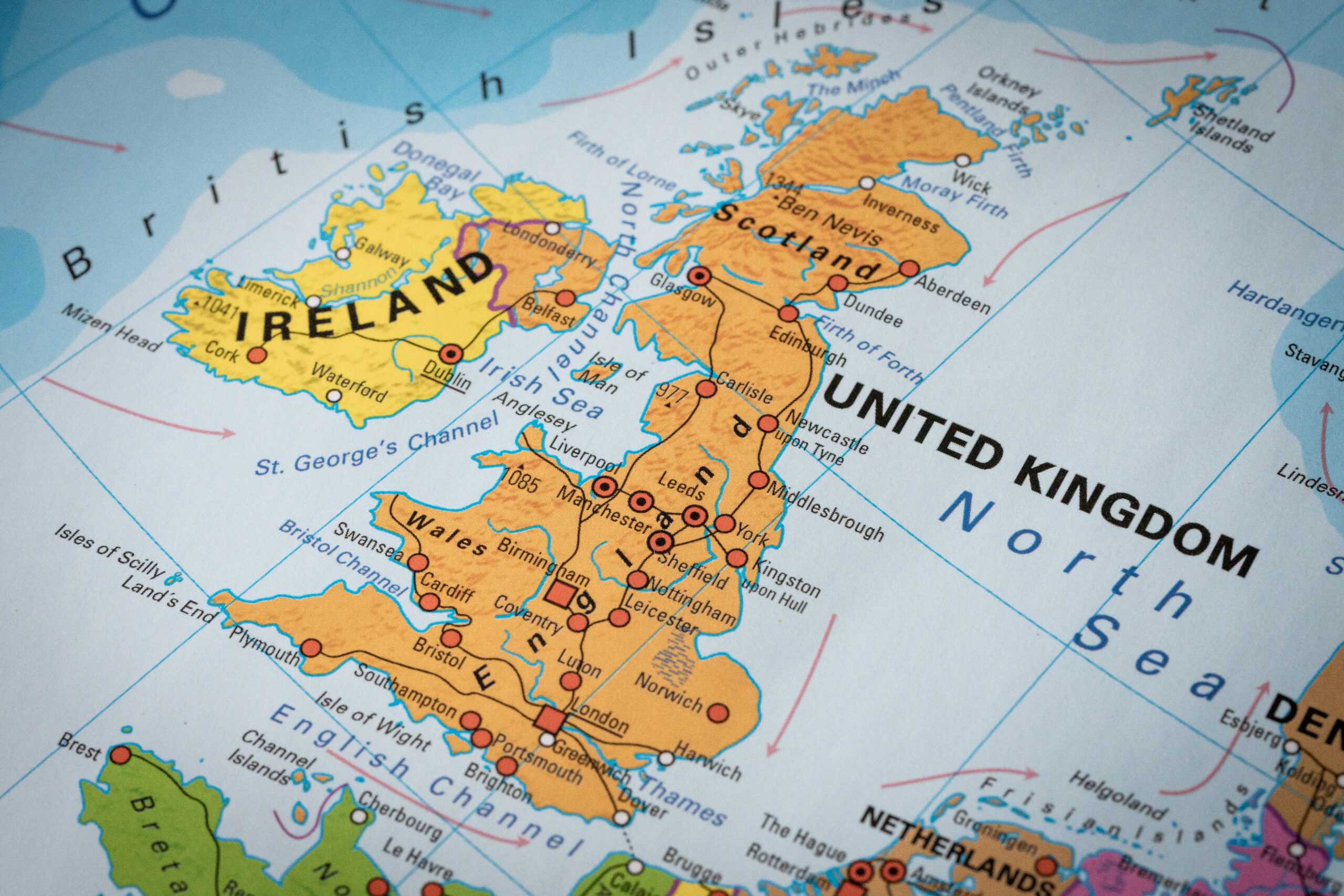The Bold Case for Change—And the Backlash It Faces
The UK’s energy system is at a turning point. As pressure mounts to decarbonise the grid, reduce costs, and upgrade ageing infrastructure, one idea is generating both excitement and controversy: zonal pricing.
At Black Sheep Utilities, we believe it’s vital that businesses understand how this debate could reshape the electricity market—and what it might mean for your energy bills. In this article, we break down the key issues, from overloaded wind farms to investor jitters, and explore the risks and opportunities that zonal pricing could bring.

The Problem: A Grid Built for a Different Age
Imagine it’s a windy night off the coast of Scotland. Giant turbines at offshore wind farms like Moray East and Seagreen are ready to generate huge amounts of clean electricity. But instead of delivering power to homes and businesses, they’re being paid not to generate at all.
Why? Because the UK’s electricity grid, originally designed to transmit power from coal and gas plants near urban centres, simply doesn’t have the capacity to transport all this renewable energy from remote coastal regions to where it’s needed.
The consequences are costly. In June, Ocean Winds was paid £72,000 in a single half-hour period to stop producing power. Meanwhile, fossil fuel plants closer to demand—such as the Grain gas-fired station near London—were paid tens of thousands to ramp up.
Balancing the grid this way cost UK consumers over £500 million in 2024, with projections estimating annual costs could hit £8 billion by 2030 if nothing changes.

The Case for Change: What Is Zonal Pricing?
Under the current national pricing model, electricity costs roughly the same across the country, whether you’re in rural Wales or central London. This system does not reflect local supply, demand, or transmission costs.
Zonal pricing, on the other hand, would divide Great Britain into regions or “zones,” each with electricity prices set based on local conditions. Areas with abundant renewable resources—such as the Scottish Highlands or Yorkshire—could benefit from significantly lower prices. Densely populated regions with limited generation might pay more.
The theory is simple: localise pricing to reflect actual conditions on the ground. This could incentivise both energy efficiency and smarter infrastructure investment.
Potential Benefits: Efficiency, Investment, and Innovation
Supporters of zonal pricing argue it would:
-
Reduce Waste: By discouraging the need to pay wind farms to power down and gas stations to fire up, zonal pricing could help cut inefficiencies across the grid.
-
Lower Bills in Some Areas: Regions rich in renewables could benefit from significantly cheaper electricity, especially on high-generation days.
-
Attract Clean Industry: Cheaper, local electricity could draw in energy-intensive businesses, revitalising some areas through green industrial growth.
-
Encourage Local Generation: Higher prices in areas like London might prompt developers to build new generation capacity closer to demand, easing transmission constraints in the long run.
Greg Jackson, CEO of Octopus Energy, believes the system could cut average household bills by £50–£100 per year and save the UK as much as £55 billion by 2050.

The Pushback: Risk, Complexity, and Investor Confidence
While zonal pricing holds promise, it also raises significant concerns—especially from the energy industry.
-
Investor Uncertainty: Companies like RWE warn that changing the pricing model could undermine billions in existing contracts and make future returns less predictable.
-
Higher Capital Costs: Renewable projects rely heavily on finance. Even small changes in pricing certainty could lead to higher borrowing costs and delay much-needed projects.
-
Regional Inequality: Some worry that zonal pricing would unfairly penalise customers in the south of England or areas without strong local generation.
-
Implementation Headaches: Moving to a zonal system would require new legislation, years of consultation, and major updates to billing systems and market rules.
The Cornwall Insight report Revolution Takes Time outlines a cautious but realistic timeline, projecting full implementation could take until at least 2031.
A Wider Transformation: Zonal Pricing, MHHS & the REMA Reforms
Zonal pricing is just one element of REMA, the Review of Energy Market Arrangements. Another key reform is Market-wide Half-Hourly Settlement (MHHS), which will settle electricity usage based on smart meter data every 30 minutes.
MHHS supports zonal pricing in three key ways:
-
Sharper, region-specific price signals
Bills will reflect real-time consumption every half hour, making price moves between zones transparent and actionable -
Enhanced demand-side flexibility
Businesses—and eventually households—can shift usage to cheaper times or zones, easing grid stress and lowering costs -
Transparent regional pricing
With zonal variation in pricing, MHHS ensures that customers truly pay local rates—reducing cross-subsidies and making cost differences visible
Together, zonal pricing and MHHS form the backbone of a smarter, more responsive energy system—timely, locally attuned, and aligned with the UK’s net-zero ambitions.

What It Means for Your Business
While zonal pricing is not yet policy, the direction of travel is clear: the UK electricity market is changing, and businesses must be ready to adapt.
At Black Sheep Utilities we:
-
-
Keep You Informed—And We’re Always Here to Help
At Black Sheep Utilities, we stay ahead of the latest energy policy changes—like zonal pricing—and break them down in our blogs and updates. And if you ever have questions about what it means for your business, just get in touch. We’re here to help. -
Procure Smarter with Professional Guidance
Regional pricing could bring new opportunities—or unexpected costs. We help you build flexible procurement strategies that respond to market changes and protect your bottom line. -
Understand Your Energy Profile with Expert Insight
As the energy landscape evolves, understanding your usage is more important than ever. We analyse your energy data and provide clear, strategic advice to help you plan ahead with confidence.
-
Final Thoughts: Opportunity or Overreach?
Zonal pricing could transform Britain’s energy landscape, making it cleaner, cheaper, and more responsive. But it could also introduce risk, cost, and complexity. The debate is fierce, and a decision is expected soon.
Whatever the outcome, Black Sheep Utilities will be here to guide your business through it. Our role is to make the complex simple—and help you make the most informed, cost-effective energy choices possible. That’s why we’re outstanding in our field!
GET IN CONTACT WITH US
What is zonal pricing and how does it differ from the current system?
Zonal pricing would divide the UK into regions where electricity prices reflect local supply, demand, and transmission costs—unlike the current national model where energy costs the same across the country. At Black Sheep Utilities, we help businesses understand how this change could impact their bills and advise on how to adapt.
Could zonal pricing lower my energy bills?
It’s possible. Businesses in regions with abundant renewable energy—like parts of Scotland or Yorkshire—may benefit from cheaper electricity. However, others may face higher costs. Black Sheep Utilities can assess your energy profile and advise whether your business is likely to benefit or need to take action.
When could zonal pricing be implemented?
According to industry reports, zonal pricing could take until at least 2031 to implement fully. In the meantime, related reforms are already underway. Black Sheep Utilities stays ahead of these changes so we can keep your business informed and ready.
What are the risks of zonal pricing for businesses?
Zonal pricing could increase complexity, raise costs in some areas, and affect long-term energy contracts. It also introduces uncertainty for investors and project developers. Black Sheep Utilities provides expert advice to help businesses navigate this evolving landscape with confidence.
How can Black Sheep Utilities support my business through these changes?
We break down complex policy changes like zonal pricing through blogs and direct advice. Our team works with you to create flexible procurement strategies, analyse your energy usage, and ensure you stay ahead of reforms—so you can focus on running your business.




